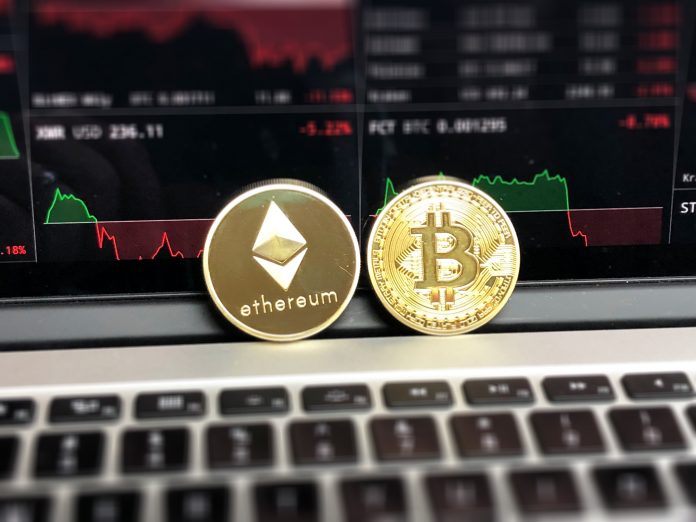This Article is written by Nicholas Walker. He is a tech writer, blogger, and Bitcoin enthusiast. He believes in a future driven by technology, and his blog posts focus on revealing such opportunities.
The easiest way to define blockchain is to label it as a decentralized, distributed, public collection of financial accounts. It’s the record-keeping system behind Bitcoin and other cryptocurrencies. If you’re familiar with Bitcoin, you heard of blockchain at one point or another. But you didn’t bother figuring out how it worked since it all seemed too complicated.
Blockchain is a growing list of financial records, so-called blocks. They hold information about financial transactions, but nobody is in charge of new data entries. There’s no bank or another institution acting as the middleman. That task is performed by a computer network, consisting of thousands of machines around the world. Each block has a unique cryptographic signature. With that, blockchain technology is very secure. It’s no wonder why governments are interested in it.
The blockchain government concept holds a lot of potential in making public services more efficient.
Examples of Blockchain in Government
To prove that this technology is already being implemented in governmental services, let’s look at few case studies.
- The Chinese government is developing a blockchain-based trade finance platform. Although China is against cryptocurrencies, such as Bitcoin, it saw the potential of blockchain technology. Its central bank is about to issue digital fiat currency.
- Canada uses blockchain technology to manage government contracts. The National research Council of Canada developed an Ethereum blockchain explorer. Through the program, they proactively share information on Contribution Agreements.
- The Australian government doesn’t lag behind. Its national strategy is focused on long-term development of blockchain.
- Estonia is a tech-driven country. Its e-Residency program is based on blockchain. With the use of this technology, the dividends of e-Residency will be accelerated.
- Smart Dubai is another case worthy of consideration. With this technology, the governing bodies estimate to save up to $1.5 billion in document processing costs on a yearly basis.
We see how governments around the world already benefit from this technology. But what happens with the citizens? What are the precise benefits they will experience when their governments implement blockchain tech for different purposes?
The Effects of Blockchain on Public Services
-
All transactions Will Be Safer
A citizen has to interact with the government on different occasions. When they need a birth certificate, they have to engage in a transaction. All these daily transactions can be supported by blockchain. Instead of the citizen showing up in the government’s offices with tons of documentation, they will get the process done through a cryptographic key.
When a student wants to enroll in school, the transaction will be processed through blockchain technology. If governments get really liberal in future, they will allow cryptocurrencies for all kinds of transactions. So if the same person wants to hire a writing essays service for students, they will be able to pay with Bitcoin.
-
The Voting Process Will Be Secure and More Convenient
Online voting is just like any other transaction. It has to be 100% secure and reliable. The voters have to be sure that their votes aren’t being abused in any way. Currently, the costs with ballot printing and electronic voting machines are extreme. The lack of transparency around electronic results auditing is also an issue. Blockchain technology will reduce the costs of elections, but it will also enhance the security of electronic voting.
-
Land Registering Will Be Safer
Georgia started a blockchain land registry project, which delivers a digital certificate of the citizen’s assets. This is a very secure and transparent solution. With blockchain, governments can develop unique records that cannot be corrupted, but can be changed in the most secure way possible.
-
Public Record Maintenance Will Be More Effective
Governments will invest in blockchain technology with the main purpose to maintain public records. All personal information of citizens, such as birth, death, and educational records, will be stored in a safe manner.
Public assets, government contracts, and all financial transactions will be recorded in blockchain, too. Currently, there is no safer way to store and categorize big data while making it searchable at the same time. The future is in blockchain technology.
Do We Trust Blockchain Enough?
Governments across the Globe already started relying on blockchain technology for the sake of effectiveness, accountability, and transparency. Does the rest of the world trust this system? Responsive open data offers benefits for all industries – banking in particular. But public services can also become more efficient thanks to it. Are we ready for the big change? It’s coming!
Images
https://www.pexels.com/photo/ethereum-and-bitcoin-emblems-730569/
 Serato DJ Crack 2025Serato DJ PRO Crack
Serato DJ Crack 2025Serato DJ PRO Crack









 Allow notifications
Allow notifications



[…] will grow from 1.5 billion (2018) to 15.9 billion (2023), it is quite clear why you should start learning about blockchain. If you are smart – and I’m sure that you are since you are reading this – you […]
i LIKE THIS THIS FOR MORE
[…] this conversation. A world without Internet is not an option. It’s there and it’s part of the public services that we get to enjoy in the modern world. So here’s the question: how do we access it in the best […]
[…] technology is growing rapidly and the applications thereof are also growing. Blockchain in public services is also an area that is being explored. The reason why it is so popular is because of the benefits […]
[…] Drive is a very reliable tool that students can have. Although blockchain for better public services in data management has not been a big thing yet, but in the education industry, a simple thing […]
[…] Investors keep piling their money into it. Blockchain is known to be the best thing that happens to public services. As a result, we are witnessing an increase in blockchain education. In the past few years, […]